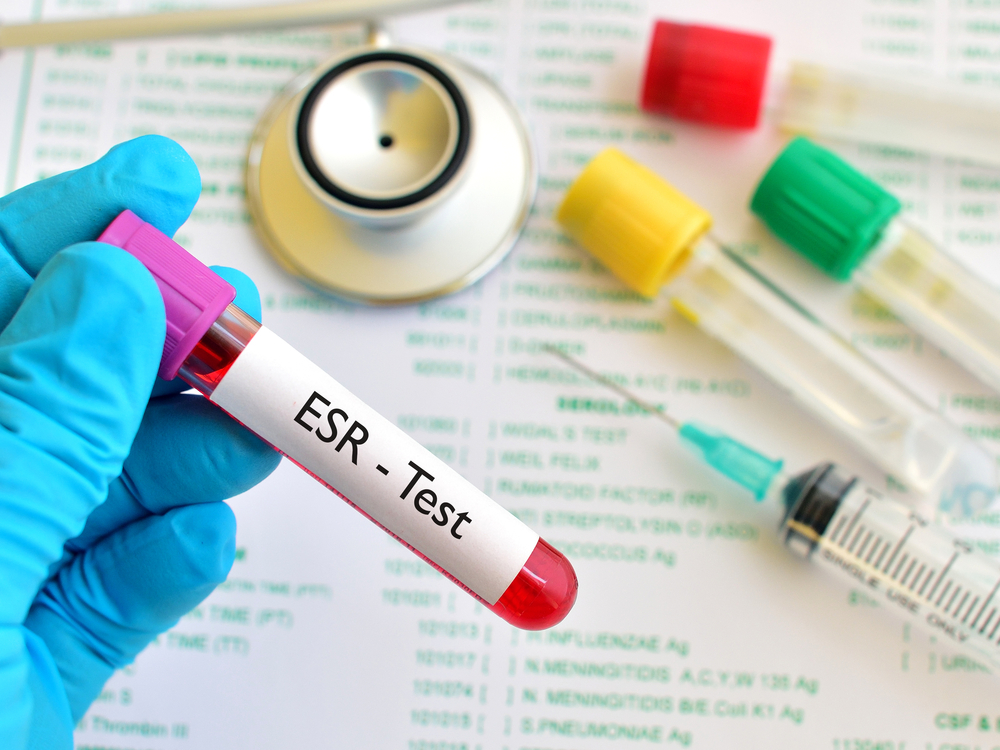Contents:
- Medical Video: Erythrocyte Sedimentation Rate (ESR or sed rate) Test
- The erythrocyte sedimentation test predicts inflammation in the body
- Who needs this test?
- How is the procedure for this test done?
- How do you read the results of the sedimentation rate test?
- What can affect the results of the erythrocyte sedimentation rate test?
- Are there other tests that doctors might do?
Medical Video: Erythrocyte Sedimentation Rate (ESR or sed rate) Test
There are many medical tests that you can take to find out your overall health condition. One of them is the erythrocyte sedimentation rate test. What is the specific function? Find out all information about the erythrocyte sedimentation rate below.
The erythrocyte sedimentation test predicts inflammation in the body
Erythrocyte sedimentation rate (abbreviated as ESR) or better known as erythrocyte sedimentation rate is a test that aims to measure how fast your erythrocytes (red blood cells) clot.
The faster the red blood cells clot, which means that your body has a problem due to inflammation.
Who needs this test?
Usually this blood test is done by a doctor to determine the diagnosis of diseases that can cause inflammation in the body such as infections, rheumatoid arthritis (rheumatism), lupus, autoimmune diseases, or even cancer. Sediment rate tests can also be done to see the development of inflammatory diseases that are being experienced by the patient.
The doctor will also advise you to do this test if you are suspected of experiencing symptoms of inflammation such as fever, joint or bone pain, chronic headaches, decreased appetite, and rapid and drastic weight loss.
Similarly, if you experience digestive disorders such as diarrhea, bloody bowel movements, or severe abdominal pain that does not heal within a few days.
However, it should be understood that this test is not able to determine exactly where the inflammation is. The erythrocyte sedimentation test only tells the doctor that there is true inflammation occurring in the body.
How is the procedure for this test done?
The process of testing the erythrocyte sedimentation rate is actually the same as a blood test in general. You can do this test at a clinic, health center, hospital, or health laboratory.
Before the medical officer takes a blood sample, make sure you tell all the medicines including vitamins, herbs, and supplements that are being consumed. Some drugs can affect test results. In addition, tell the medical officer if you are pregnant and menstruating.
In general the stages of the erythrocyte sedimentation rate process are:
- The medical staff will clean your arms with an antiseptic solution.
- Then the medical officer will enter a sterile needle into a blood vessel in the inner elbow and attaching a tube to be filled with your blood. You may feel a slight pain when a health worker takes a blood sample. But don't worry, this sting of pain generally only lasts for a few seconds.
- After taking enough blood, the health worker will remove the needle and close the injection marks with a bandage to stop the bleeding.
- The medical officer will immediately send your blood sample to the laboratory for analysis.
- In the laboratory the medical team will place a blood sample on the test tube. This is done to see how quickly your red blood cells settle at the bottom of the tube in a span of about 1 hour.
Some people may experience small pains and bruises in the area of the injection as a side effect after taking a blood test. Others may feel a throbbing sensation in the area of the injection site and a mild headache. These side effects are generally harmless and can improve after a few days.
How do you read the results of the sedimentation rate test?
The sedimentation rate is measured in millimeters per hour (mm / hour). Based on age, the normal value of erythrocyte sedimentation rate is:
- 0 to 10 mm / hour in children
- 0 to 15 mm / hour in men under 50 years of age
- 0 to 20 mm / hour in men over 50 years
- 0 to 20 mm / hour in women under 50 years of age
- 0 to 30 mm / hour in women over 50 years
If your red blood cells tend to settle quickly, the erythrocyte sedimentation rate is high. This means that you have a condition or disease that causes inflammation or cell damage.
But pbasically the test results will vary depending on age, gender, medical history, the method used for the test, and so on.
The results of a high blood pressure sediment test do not always indicate that you have a serious medical problem. However, a high-blood sedimentation rate test can be a reference for a doctor to do another examination to confirm the diagnosis.
What can affect the results of the erythrocyte sedimentation rate test?
The patient's body condition when conducting an examination can affect the accuracy of the sedimentation rate of the blood. For example women who are pregnant or menstruating.
Some other special conditions that might affect the accuracy of the results of the erythrocyte sedimentation rate are:
- Elderly
- Anemia
- Thyroid disease
- Kidney illness
- Pregnancy
- Cancer like multiple myeloma
- Infection
- Drugs certain
So if you experience one or more of the conditions above, be sure to tell the doctor before undergoing the examination. This is done so that the examination results can be accurate.
Are there other tests that doctors might do?
It is important to know that an erythrocyte sedimentation rate can only tell you that you have inflammation somewhere in the body. So, this examination cannot show where exactly inflammation occurs and what causes it.
Your doctor will usually advise you to take other tests such as C-reactive protein (CRP) along with the erythrocyte sedimentation rate test to better confirm the diagnosis. Besides helping to measure the level of inflammation in your body, CRP can also help predict your risk of coronary heart disease and other heart diseases.
Please consult the doctor further to ask for a more complete explanation regarding the results of the erythrocyte sedimentation rate and other tests that you have done. Make sure you understand what the results of the examination mean and what effects they have on the treatment you are taking.

















